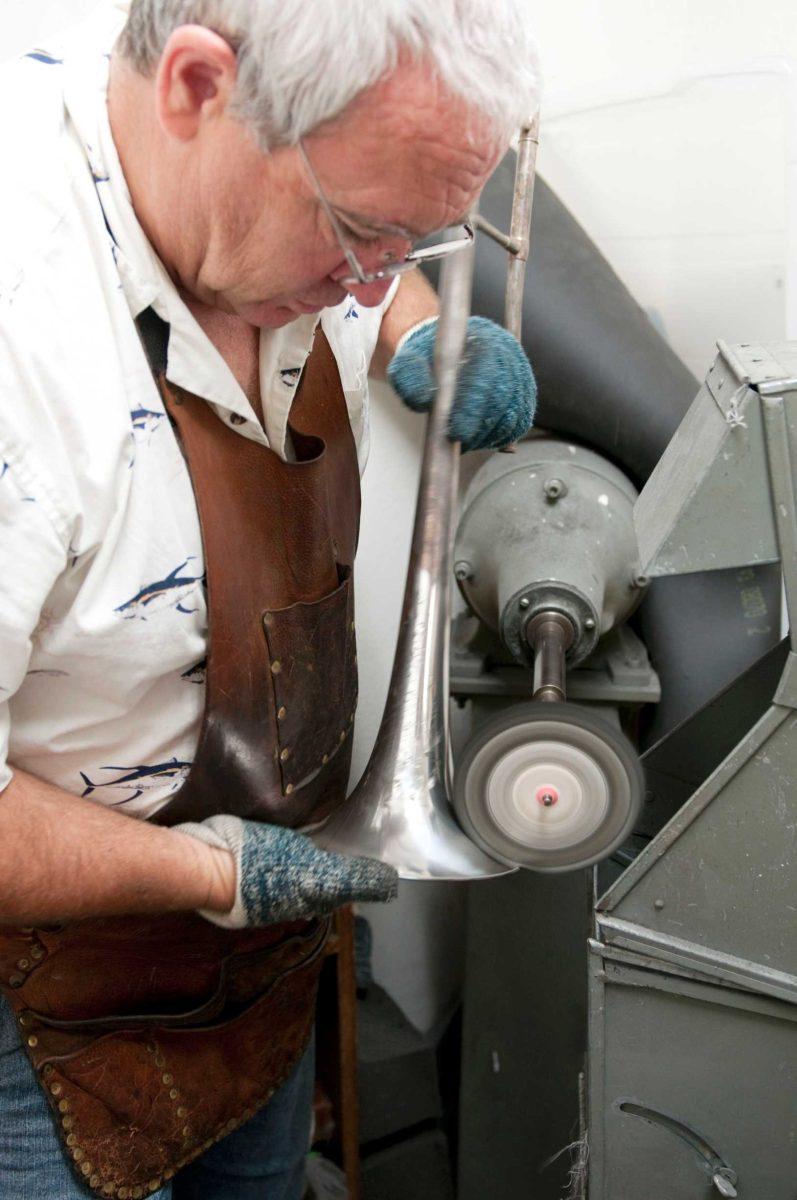The College of Music and Dramatic Arts is launching a new campaign to encourage music education by collecting and revamping old instruments people may have lying around the house to be donated to local schoolchildren who want to learn to play.
The college will accept instruments in just about any condition, according to Mark Vandermark, instrument repair technician in the LSU Department of Band, who has been repairing instruments for the last 30 years and teaches an instrument repair class.
“An instrument can’t be beyond repair,” he said. “If we need to, we can even use the best parts of an instrument to build a new one. There isn’t really anything we can’t fix.”
Vandermark will have his students assist in the instrument restoration process, and the most common repairs these instruments will need include polishing and chemical cleans.
“A lot of what I do is car-related,” he said. “If a car sits up for a year, it’s not going to run really well. I clean the instruments up, take the dents out and make them look nice.”
So far, the college has collected two trumpets, three trombones, two guitars, a violin and two clarinets since the campaign was announced last week, Vandermark said.
Pamela Matassa, CMDA communications director, said the college will coordinate with the East Baton Rouge Parish School Board to determine which schools will be receiving the instruments.
“It will likely be nearby public schools with band or music programs,” Matassa said. “There is definitely a need.”
Matassa said she hopes to encourage future musicians while they are still young.
“There are new opportunities arising at LSU for young artists, but how can we promote those if we don’t start from the ground up?” she said. “What if we caught the students earlier and were able to help them when they were first choosing their instruments?”
Vandermark said instruments can teach children valuable lessons.
“Musical instruments teach kids goal achievement without them even knowing it,” he said. “They are basically setting a goal and working through it, but it’s not the same as working a math problem. Music doesn’t seem like work, which is why they call it ‘playing’ an instrument and not ‘working’ an instrument.”
Matassa said each instrument comes with its own story, like a woman who donated several of her husband’s instruments after he passed away three months ago.
“They want their music to live on,” Matassa said. “Each instrument will have a story.”
One woman donated her father’s trombone from when he used to play for the University’s band in 1917.
Laurence Kaptain, dean of the CMDA, said the next step is providing these children with music lessons.
Kaptain said while many other universities have music academies that give up to 2,500 lessons per week, LSU only averages about 90 per week.
“Right now we have a music academy that’s microscopic,” he said. “We are going to make this a priority.”
Kaptain said the school is in the planning stages of a state-of-the-art Performing Arts Academy that would include a team of faculty, experienced graduate students and certified local professionals who would be instructing local students who want to learn to play an instrument.
“It’s about high-quality programs and giving back to the community,” he said.
The instruments will start being distributed Nov. 1 in conjunction with the recording of the “From the Top” National Public Radio program at the Student Union Theater on Nov. 2. The program recognizes distinguished child music prodigies.
People who want to donate can call Matassa at 225-578-8436 to arrange an instrument pickup, or they can deliver them directly to the Band Hall.
____
Contact Sarah Eddington at seddington@lsureveille.com
CMDA collects instruments for donations to local schoolchildren
October 24, 2010
LSU Department of Bands instrument repair technician Mark Vandermark polishes a donated trombone dating to 1917. The instrument originally belonged to the donor’s father who played in Tiger Band during his time as a student at LSU.





